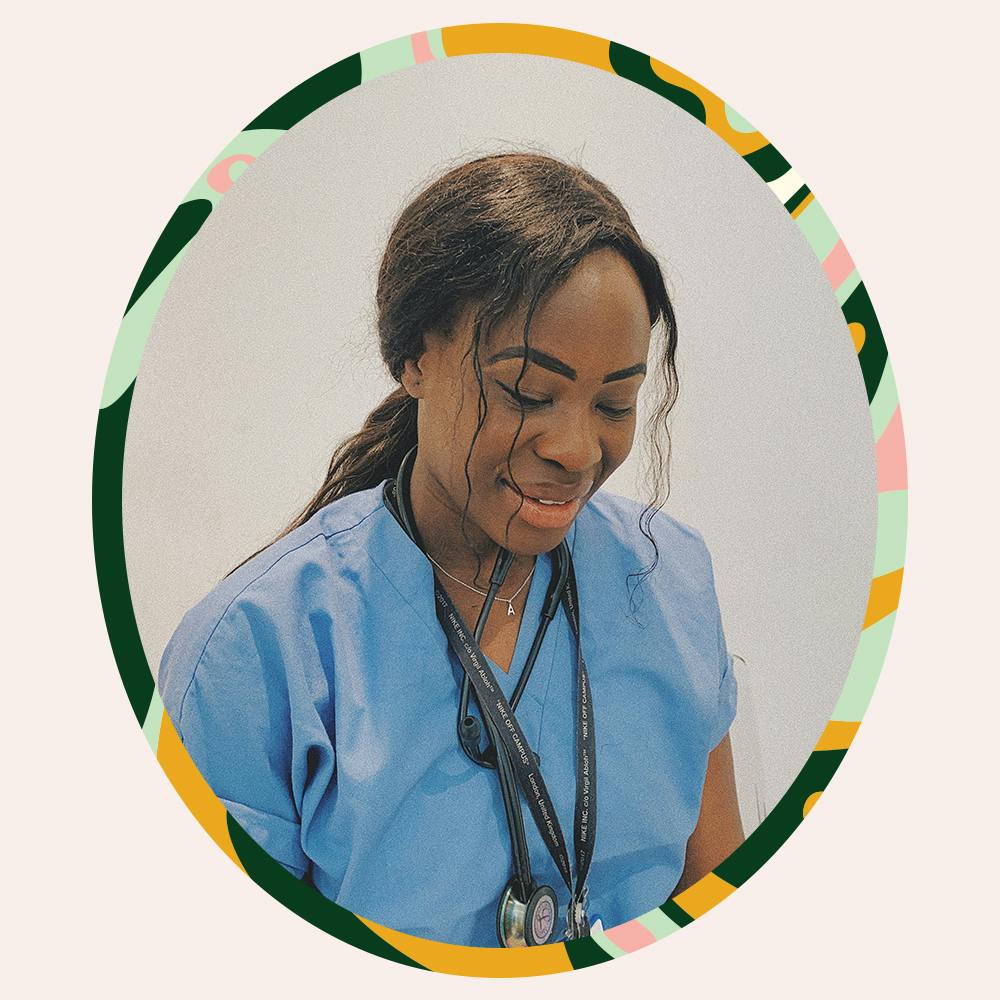Have you ever thought about how doctors look after their own health?
As a matter of fact, have you ever thought about whether doctors have a different approach to reproduce and sexual health? "Whether or not you’re a doctor, we all receive the same social education," says Dr. Amile Inusa, an NHS doctor, podcaster, and co-creator of Modern Lit.
Growing up, few of us have the privilege of being taught comprehensive and inclusive sexual education, and sometimes we forget that even medical professionals—female ones especially—have to unlearn years of social conditioning and misinformation.
So what does it look like to navigate the world as a woman, grow up in the Church, and practice medicine? We caught up with Dr. Amile to understand how she reconciles her own intuition with Western medicine...
Growing up very few of us have a clear understanding about reproductive and sexual health, what was yours like?
I grew up in the age of women’s magazines. So either on the bus or in the library, I would flick through a Cosmopolitan with friends. And that felt super revolutionary at the time! But when you think back, it really never focussed on women. Just articles on “what it means to pleasure a man” and “how do you smell down there?". So clear understanding? No. And it probably didn’t help that I was a church kid growing up, so my information was fairly limited.
I went to a girl’s school for my secondary education. Amongst all the teenage angst and love obsessions, we’d have open conversations about our periods and hormones. If I remember correctly, there were some very proactive teachers who led sessions on reproductive and sexual health. And though we only had this session twice a year, I remember learning a lot.
In Church, we would look at abstinence as it pertains to the bible. So the nitty gritty of what it meant to be a woman and how to look after your sexual health felt off-limits.
Did working in medicine change the way you view sexual and reproductive health in any way?
Whether or not you’re a doctor, we all receive the same social education. Learning about the vulva or reproductive system isn’t inherently intuitive.
It also doesn’t really tell you a lot about yourself or how to look after your own health. So actually, most of my information came from the internet, which is really bizarre. As a medical student you learn about [sexual health] from a very one-size-fits-all perspective.
Periods affect people in different ways, and we all have our own relationship with our menstrual cycles. Has yours changed at all over the years?
Definitely! Growing up I was such a girls’ girl. However I was really into sports and didn’t really care to look after my period. This also meant that I got into loads of “accidents”! You know those days...when you have to tie a jumper around your waist? It took me ages to be like “ok, come on, you need to look after yourself a bit more when you’re on your period”.
I think that came with not having much pain when I was ‘on’. Whereas all my girls who had painful periods were really good at looking after themselves, and made sure they had sufficient pain relief, or they knew how to change certain parts of their lives to deal with it.
As I’ve gotten older and care more about the way I experience life, it’s been really important for me to make sure that I have the right products, and technology to be able to track my period and my mood.
Many women struggle to find the right method of contraception for them, what has your experience with birth control been like?
I’m not going to lie to you, as much as I’m a doctor and practice Western medicine there’s a part of me that doesn’t like taking something to regulate my period.
And even though I think it’s important for others, I prefer not to use any hormonal contraception. I’m open to that changing later on, but it’s always been something I’ve been apprehensive of becoming reliant on.
Is there anything you do specifically to keep your reproductive health in check?
I almost don’t think of my reproductive health as very dissimilar to my general health;and this may be because of my approach to medicine generally.
Functional Medicine strays away from looking at a disease or specific pathology. Rather it looks at the individual and asks how they experience that pathology. “how does the person feel?”, “how do they eat?”, “how do they sleep?”.
Functional Medicine looks at the root cause of disease. Asking all these questions will promote good health generally, but also just allows you to remain in tune with your body and reproductive health. .
What do you think is the most important thing women can start doing to take care of their reproductive health?
Forget shame! There’s no shame involved in looking after your reproductive health. It prevents many women from undergoing cervical screening, asking their doctor for contraceptive advice or trying new menstrual products.





